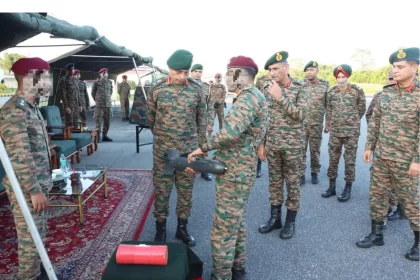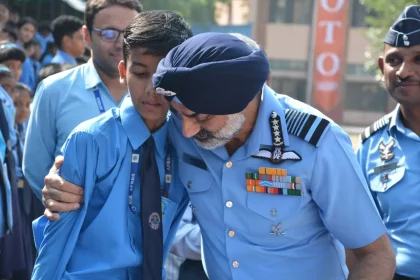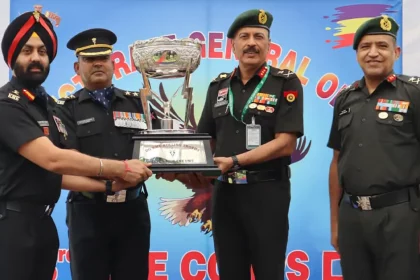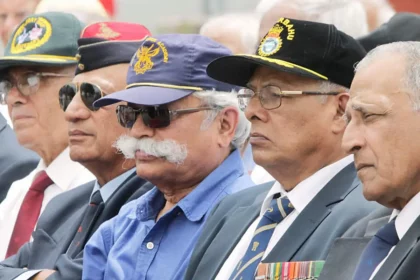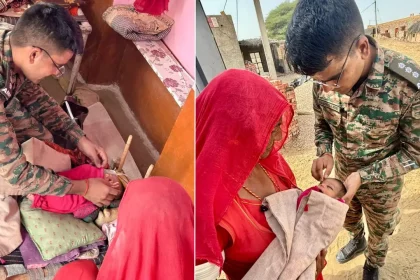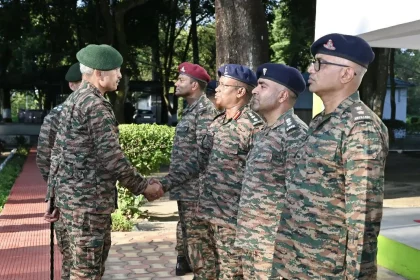Lt Gen RC Tiwari Reviews Operational Preparedness of Special Forces Under Gajraj Corps
Lt Gen R.C. Tiwari, Army Commander Eastern Command, reviewed the operational preparedness of Special Forces under Gajraj Corps and lauded…
Air Chief Marshal AP Singh Inspires Students at Air Force Bal Bharti School
Air Chief Marshal A. P. Singh inspired students and staff at Air Force Bal Bharti School with his message on…
Vajr Eagles Conferred the Prestigious DG EME Rolling Trophy 2025 for Best EME Unit of the Indian Army
Chinar Corps’ Vajr Eagles were awarded the DG EME Rolling Trophy 2025 for their exceptional performance in technological innovation, combat…
Defence Minister Approves 100% Hike in Financial Assistance for Ex-Servicemen and Their Dependents
Financial assistance for veterans and their families doubled; move to benefit non-pensioner ESM, widows, and dependents from low-income groups.
Army Doctors of Battle Axe Division Save Life of Newborn in Border Village of Jaisalmer
Indian Army’s Battle Axe Division Showcases Professionalism and Compassion in Life-Saving Medical Mission.
Lt Gen R.C. Tiwari Reviews Operational Preparedness of Agnirath Brigade at Solmara Military Station
Lt Gen R.C. Tiwari Commends Agnirath Brigade’s Multi-Domain Readiness and Technological Innovation at Solmara.

